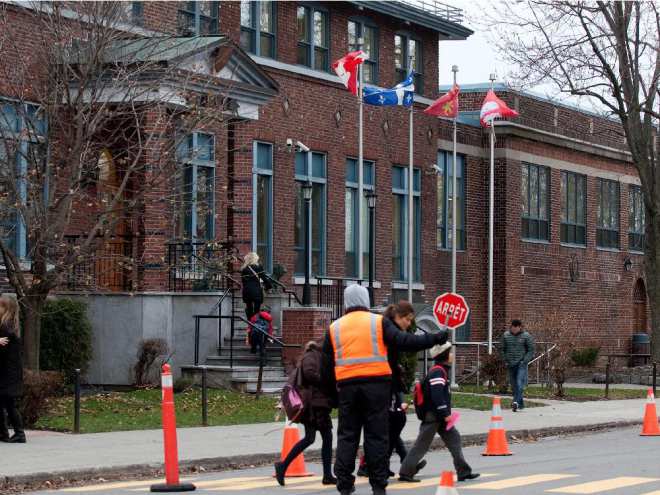Some private English-language schools in Montreal are so frustrated with Quebec’s language law regarding student admission they are considering refusing an annual government subsidy and going entirely private.
That would allow private English schools to bypass Bill 101 — Quebec’s language law — and give them a larger applicant pool to choose from, including the richest francophone students.
But doing so could also alter the makeup of English private schools because many of their students receive loans and grants, and schools forgoing the subsidy would likely push tuition to levels accessible only to the richest of the rich in Quebec.
“Yes, there are some (English) private schools that are likely going to consider dropping the subsidies,” said a well-placed source with ties to the province’s English-language network of private schools.
A second source close to the network confirmed a handful of institutions are considering giving up the subsidy.
One is The Study, according to Susan Orr-Mongeau, director of communications for the all-girls school in the wealthy Montreal enclave of Westmount.
Most of Quebec’s English-language private schools receive about $4,500 per high school student a year. They do not receive subsidies for elementary students. By accepting money, they must abide by the province’s French Language Charter.
Immigrant students from outside Canada and francophones whose parents went to French school are barred from attending subsidized English schools in Quebec.
However, for years, immigrants and some francophones used a loophole in the legislation and sent their kids to private English elementary school for one year, thus earning the eligibility requirement to continue attending English school.
Quebec cracked down on the so-called “bridge schools” several years ago but in 2009 the Supreme Court of Canada ruled the province’s laws were unconstitutional.
Therefore, in 2010, Quebec introduced a complicated point system that allows students to attend a private, English-language subsidized high school only if they receive a minimum of 15 points during their primary education.
However, students can receive 15 points only if they attend what’s known as an “A” private English school.
The problem facing many schools since 2010 is that they have been downgraded from an A level school to a B or C and have lost their ability to give students certificates of eligibility to attend English high schools in Quebec.
“The government cut the criteria so narrowly they made it virtually impossible to qualify under the point system for most students going to most (private) schools,” said one of the two sources.
Another person with a keen interest in the issue called the province’s school admission criteria a “Byzantine web of rules.”
“I can tell you that there are schools who have been downgraded and who are wondering if they were to say no to funding, what would the ramifications be,” said Christopher Shannon, headmaster at Lower Canada College in Montreal — an “A”-designated English private school.
He said his school is not considering dropping the subsidy.
Language politics in Quebec — especially when it comes to children’s education — is a highly sensitive issue.
Holly Hampson, executive director of the association that represents the province’s main 23 private English schools, would neither confirm nor deny that several member schools are considering dropping the provincial subsidy.
Hampson didn’t have a precise number of students her organization represents, but said it was under 10,000.
Brent Tyler, a constitutional lawyer who took the Quebec government to the Supreme Court over the “bridge school” issue, says he is not surprised certain private schools are considering forgoing the provincial subsidy.
“There are private schools where a child can do all of their primary instruction in that school and it’s still not good enough to go to an English high school,” he said.
Tyler says the amount some private schools get from the government is less than the amount they lose from students who decide to study elsewhere.
A spokeswoman for Quebec’s Education Department said Wednesday the government “is aware of the situation.”
“We are currently analyzing it,” she said.
English private schools say Quebec admission rules limit access to students





























Laissez un commentaire Votre adresse courriel ne sera pas publiée.
Veuillez vous connecter afin de laisser un commentaire.
Aucun commentaire trouvé